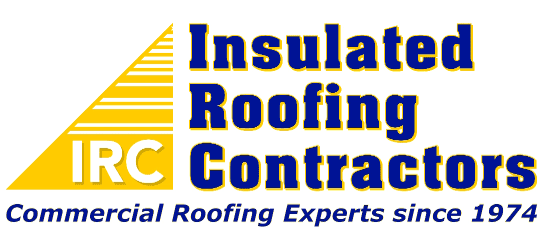Facing roof problems can feel overwhelming, especially when you’re unsure whether a simple repair will suffice or if it’s time for a complete replacement. This decision significantly impacts your budget, operations, and long-term property value. Making the wrong choice could lead to ongoing issues and unnecessary expenses.
The key lies in understanding the specific factors that determine when commercial roof repair makes sense versus when roof replacement becomes necessary. By evaluating your roof’s condition systematically, you can make an informed decision that protects your investment and keeps your business running smoothly.
Assess the Age of Your Roofing System
Your roof’s age is one of the most important factors in the repair versus replace decision. Most commercial roofing systems have predictable lifespans that help guide this choice.
Single-ply membrane roofs typically last 20-30 years, while built-up roofing systems can serve you well for 15-25 years. Metal roofs often exceed 30 years with proper maintenance. If your roof is approaching or has exceeded these timeframes, replacement usually makes more financial sense than continued repairs.
However, age alone shouldn’t determine your decision. A well-maintained 25-year-old roof might have several good years left, while a neglected 10-year-old system could need replacement. Consider age alongside other factors for the most accurate roof condition evaluation.
Look at the Extent of the Damage
The scope and severity of damage plays a crucial role in determining whether repair or replacement is the better option. Minor issues like small leaks, loose flashing, or isolated membrane damage typically warrant repairs.
More extensive problems signal the need for replacement. These include widespread membrane deterioration, structural damage, multiple leak points, or recurring issues in different roof areas. When damage covers more than 25% of your roof surface, replacement often becomes more cost-effective than patching multiple problem areas.
Professional roof damage assessment helps identify hidden issues that might not be immediately visible. Water damage can spread far beyond the obvious leak points, compromising insulation and structural components that aren’t apparent from surface inspections.
Review the Frequency of Repairs
Frequent repairs are a clear sign that your roofing system is failing. If you’re calling contractors multiple times per year for different issues, you’re likely dealing with systemic problems rather than isolated incidents.
Track your repair history over the past few years. Multiple repairs in a short timeframe often indicate that your roof has reached the end of its useful life. The cost of ongoing maintenance can quickly exceed the investment in a new roof, making replacement the smarter financial choice.
Consider the disruption factor as well. Frequent repairs mean repeated interruptions to your business operations, potential damage to inventory or equipment, and ongoing concerns about when the next problem will arise.
Check for Energy Efficiency and Code Compliance
Older roofing systems may not meet current energy efficiency standards or building codes. If your roof lacks adequate insulation, has poor drainage design, or doesn’t comply with updated fire safety requirements, replacement might be necessary regardless of its physical condition.
Modern roofing systems offer significant energy savings through improved insulation and reflective materials. These efficiency gains can help offset replacement costs through reduced utility bills over time. Some systems can cut cooling costs by up to 50% compared to older roof installations.
Building code updates sometimes require compliance when making major repairs. If bringing your current roof up to code would cost nearly as much as replacement, the new roof option provides better long-term value and eliminates future compliance concerns.
Evaluate Your Long-Term Property Plans
Your future plans for the building should influence your repair versus replace decision. If you’re planning to sell the property within a few years, a new roof can significantly increase its value and marketability.
Buildings you plan to own long-term benefit more from replacement investment. A new commercial roof protects your property for decades and eliminates the uncertainty and expense of ongoing repairs. This is particularly important for properties housing critical operations that can’t afford unexpected roof failures.
Consider upcoming renovations or expansions as well. If major building improvements are planned, coordinating roof replacement with other projects can reduce overall costs and minimize business disruption.
Making the Right Investment for Your Business
The repair versus replace decision requires careful evaluation of multiple factors rather than focusing on initial costs alone. Age, damage extent, repair frequency, code compliance, and your long-term plans all contribute to the best choice for your specific situation.
While repairs might seem more budget-friendly initially, replacement often provides better value when you consider the total cost of ownership, energy savings, and peace of mind that comes with a new roofing system.Not sure whether to repair or replace your commercial roof? Contact IRC today for a comprehensive roof condition evaluation and honest recommendation. Our experienced team can assess all the factors affecting your roofing decision and help you choose the option that best serves your business needs and budget.
